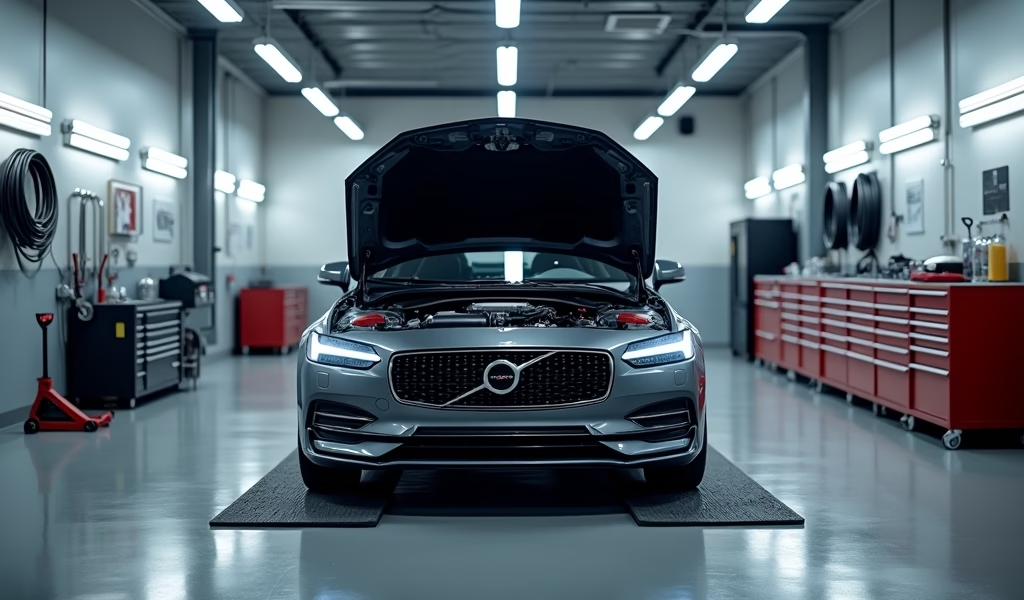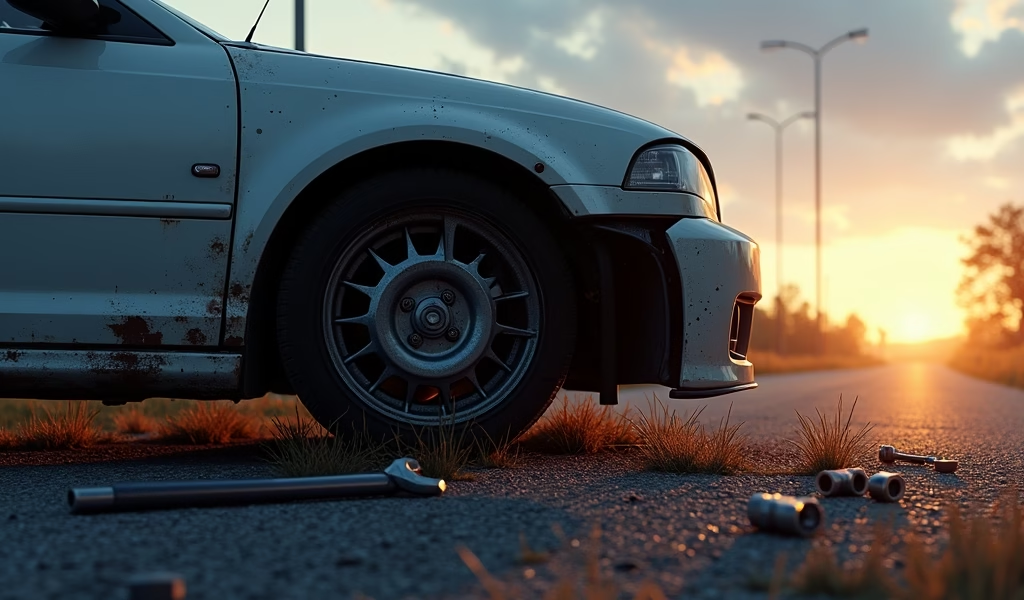Overview
This article emphasizes preventive vehicle maintenance as the primary way to avoid accidents and the need for car injury lawyers, covering specific maintenance areas including tire care, fluid checks, brake systems, electrical systems, and seasonal preparations. It provides practical guidance on DIY maintenance versus professional help, emergency preparedness, and the importance of documentation, ultimately positioning proper car care as a safety imperative rather than just a mechanical consideration.
Table of Contents
- Understanding Car Injury Law Firms: Your Allies After an Accident
- Preventive Maintenance: The First Line of Defense
- Tire Care: The Foundation of Safe Driving
- Fluid Checks: Keeping Your Car’s Lifeblood Flowing
- Brake System Maintenance: When Stopping Matters Most
- Electrical System Care: Powering Your Safety Features
- Seasonal Maintenance Tips: Preparing for Weather Changes
- Building Your Car Emergency Kit
- Documentation: Your Paper Trail Matters
- When to Call the Professionals
- Conclusion
- Frequently Asked Questions
When it comes to vehicle safety, an ounce of prevention is worth a pound of cure. As someone who’s spent 20+ years under the hood, I’ve seen how proper maintenance doesn’t just extend your car’s life—it can actually save yours. And while motor vehicle accident lawyers are invaluable after a collision, wouldn’t you rather avoid needing one altogether? Let’s talk about how you can keep your ride in tip-top shape and minimize your risk on the road. 🔧
Understanding Car Injury Law Firms: Your Allies After an Accident
Before diving into preventive maintenance, let’s understand what car injury law firms actually do. These specialized legal teams focus exclusively on helping accident victims navigate the complicated aftermath of a collision. Think of them as your advocates when you’re at your most vulnerable.
Car injury law firms handle everything from insurance negotiations to litigation if necessary. They understand the medical, financial, and emotional toll accidents take. Their expertise becomes critical when you’re facing mounting medical bills, lost wages, and the stress of recovery.
But here’s the thing—while having access to excellent car crash attorney services is important, avoiding accidents in the first place is always the better option. That’s where proactive car care comes into play.

Tire Care: The Foundation of Safe Driving
Your tires are quite literally where the rubber meets the road. Nothing affects your vehicle’s safety more directly than those four contact patches, each about the size of your hand. Yet I’m always surprised by how many folks neglect them! 😱
First things first: pressure matters. Check your tire pressure monthly (including your spare) when the tires are cold. The correct pressure isn’t what’s stamped on the tire sidewall—it’s what’s listed on the sticker inside your driver’s door jamb or in your owner’s manual.
Underinflated tires don’t just waste gas; they create excessive heat buildup that can lead to blowouts. Overinflated tires reduce traction and wear unevenly. Either condition can contribute to accidents that might eventually involve lawyer in car accident scenarios.
Now let’s talk tread depth. The quarter test is your friend here—place a quarter into the tread groove with Washington’s head upside down. If you can see the top of George’s head, your tread depth is below 4/32″ and it’s time to shop for new tires. For winter driving, you’ll want even more tread.
Don’t forget rotation! Every 5,000-7,000 miles, have those tires rotated to ensure even wear. While you’re at it, get them balanced and aligned. The small cost of these services pales in comparison to tire-related accidents, which account for about 11,000 crashes annually according to NHTSA data.
Preventive Maintenance: The First Line of Defense
Let me share something I tell all my customers: the owner’s manual is your car’s bible. That little book in your glove compartment outlines exactly when to service every component of your vehicle. It’s not a suggestion—it’s a prescription for longevity.
Regular oil changes are the single most important maintenance item. Modern synthetic oils can last longer than conventional oils, but don’t push it. Dirty oil is like cholesterol in your arteries—it slowly damages your engine from the inside out.
Beyond oil, develop a relationship with a trusted mechanic for regular inspections. A good tech will check your:
- Belts and hoses for cracks or leaks
- Battery terminals for corrosion
- Air filters for cleanliness
- Suspension components for wear
- Exhaust system for integrity
These preventive checks cost relatively little but can identify problems before they leave you stranded—or worse, cause an accident. According to the Car Care Council, neglected maintenance leads to over 2,600 deaths annually, nearly 100,000 disabling injuries, and more than $2 billion in lost wages, medical expenses, and property damage.
Fluid Checks: Keeping Your Car’s Lifeblood Flowing
Your vehicle runs on more than just gasoline. There’s a whole circulatory system of fluids that needs regular attention. Think of these fluids as your car’s vital signs—when they’re off, trouble’s brewing.
Engine oil is just the beginning. Transmission fluid, power steering fluid, brake fluid, coolant, and even windshield washer fluid all play critical roles in your vehicle’s operation and safety. Each has its own schedule for checking and replacement.
Coolant deserves special attention because it prevents both freezing in winter and overheating in summer. A 50/50 mix of antifreeze and distilled water is the standard recommendation, but check your manual for specifics. Never open a hot radiator cap—the pressurized fluid can cause severe burns.
Brake fluid is hygroscopic, meaning it absorbs moisture from the air over time. This moisture lowers the fluid’s boiling point and can lead to brake failure under hard use. Most manufacturers recommend replacement every 2-3 years regardless of mileage.
I suggest making fluid checks part of your regular gas station routine. While the fuel is pumping, pop the hood and check your oil and coolant levels. It takes less than a minute but can save you thousands in repair costs and potentially prevent accidents.
Brake System Maintenance: When Stopping Matters Most
If there’s one system in your car you never want to fail, it’s your brakes. Yet brake problems remain one of the most common mechanical factors in accidents. The good news? Most brake issues announce themselves well before failure occurs.
Pay attention to these warning signs:
- Squealing or grinding noises when braking
- Vibration or pulsation in the brake pedal
- Vehicle pulling to one side during braking
- Increased stopping distance
- Soft or spongy brake pedal feel
- Burning smell during or after driving
Any of these symptoms warrants immediate professional attention. Don’t wait—brake problems only get worse (and more expensive) with time.
For preventive maintenance, have your brake pads inspected with every oil change. Most modern vehicles have wear indicators that create a squealing sound when pads are getting thin. Rotors should be checked for thickness and warping during pad replacement.
Brake fluid should be clear with a slight amber tint. If it’s dark or cloudy, it needs replacement. Remember that moisture contamination happens regardless of mileage, so follow time-based replacement intervals even if you don’t drive much.

Electrical System Care: Powering Your Safety Features
Modern vehicles are essentially computers on wheels. Your car likely has dozens of electronic control units managing everything from engine performance to safety systems like airbags and stability control. All of these depend on a healthy electrical system.
Battery maintenance is straightforward but crucial. Have your battery tested annually after it’s 2 years old. Keep the terminals clean of corrosion (a mixture of baking soda and water works wonders). If you live in extreme climates, consider a battery blanket for winter or look for a high-temperature rated battery for summer.
Your alternator charges the battery and powers electrical systems while the engine runs. Warning signs of alternator problems include dimming headlights, a dashboard warning light, or electrical accessories working slowly. Strange noises from the alternator area also warrant investigation.
Don’t overlook fuses and wiring. Rodents love to chew on modern wiring insulation, which is often made from soy-based materials. A chewed wire can disable critical safety systems without warning. If you park outdoors or in a garage near natural areas, consider rodent deterrent measures.
When replacing any electrical component, always use the manufacturer-recommended parts or high-quality equivalents. This is especially true for safety-related items like brake light switches or airbag components.
Seasonal Maintenance Tips: Preparing for Weather Changes
Just as you switch your wardrobe with the seasons, your car needs seasonal adjustments too. Proactive seasonal maintenance can prevent many common cold-weather and hot-weather breakdowns.
For winter preparation:
- Test your battery – cold temperatures reduce battery efficiency
- Check antifreeze concentration with a tester (available at any auto parts store)
- Switch to winter-weight oil if recommended for your vehicle
- Consider winter tires if you face snow and ice regularly
- Replace wiper blades with winter-specific versions
- Check your heater and defroster operation
Summer readiness is equally important:
- Test your air conditioning before hot weather arrives
- Check coolant level and condition – overheating is a summer hazard
- Inspect belts and hoses – heat accelerates deterioration
- Check tire pressure more frequently – heat increases tire pressure
- Top off washer fluid with a summer formula that removes bugs effectively
Spring and fall serve as transition seasons—ideal times for thorough inspections and fluid changes. These preventive measures can dramatically reduce your chances of ending up on the roadside waiting for a tow truck… or worse, in an accident that requires legal assistance.
Building Your Car Emergency Kit
Even with perfect maintenance, emergencies happen. Being prepared can make the difference between a minor inconvenience and a dangerous situation. Every vehicle should have a basic emergency kit containing:
- Jumper cables or a portable jump starter
- Basic tools (screwdrivers, pliers, adjustable wrench)
- Flashlight with extra batteries
- Road flares or reflective triangles
- First-aid kit
- Blanket or space blanket
- Bottled water and non-perishable snacks
- Phone charger or power bank
- Tire pressure gauge
- Duct tape (the universal temporary fix!)
In winter months, add these items:
- Ice scraper and snow brush
- Small shovel
- Sand, cat litter, or traction mats
- Extra warm clothing
- Hand warmers
For summer travel, consider:
- Extra coolant
- Sunscreen
- Extra water
- Umbrella or sun shelter
Check your kit seasonally and replace any expired or used items. Store it where it’s easily accessible but won’t become a projectile in an accident—your trunk or under a seat works well for most items.
Documentation: Your Paper Trail Matters
Here’s something many drivers overlook: documentation of your maintenance history. This paper trail isn’t just for resale value—it can be crucial if you’re ever in an accident where vehicle maintenance might be questioned.
Keep a dedicated folder or digital record of all:
- Oil changes and other fluid services
- Tire purchases, rotations, and alignments
- Brake work
- Major repairs or replacements
- Recall notices and their resolution
- Annual inspections
Some insurance companies offer discounts for well-maintained vehicles. More importantly, in the unfortunate event of an accident, this documentation shows you’ve been a responsible vehicle owner—something that could matter if maintenance issues become part of a legal case.
Many repair shops now offer digital record-keeping, or you can use a smartphone app to track maintenance. At minimum, keep your receipts in a folder. The small effort pays dividends in peace of mind and potentially in legal protection.
When to Call the Professionals
DIY maintenance has limits. Knowing when to call in the pros is just as important as handling basic maintenance yourself. Generally, you should seek professional help for:
- Warning lights on your dashboard that persist
- Unusual noises, especially from brakes or suspension
- Fluid leaks (if the puddle under your car isn’t clear water from A/C condensation)
- Steering problems or pulling to one side
- Brake issues of any kind
- Airbag or safety system warnings
- Engine performance problems (rough running, stalling, power loss)
Don’t put off these issues thinking they’ll improve—they almost never do. The cost of early intervention is almost always less than waiting until complete failure occurs. Plus, driving with known mechanical problems could be considered negligent if it contributes to an accident.
When selecting a repair facility, look for ASE certification, good reviews, and shops that specialize in your make of vehicle. Dealership service departments have manufacturer-specific training but may charge more than independent shops. Either way, establish a relationship before you have an emergency—the best mechanics prioritize regular customers when schedules get tight.
Conclusion
Maintaining your vehicle isn’t just about preserving your investment—it’s about protecting yourself, your passengers, and others on the road. While car injury law firms provide invaluable assistance after accidents happen, prevention through proper maintenance remains your best defense.
Remember, regular maintenance is far less expensive than repairs after breakdown, and infinitely cheaper than the human and financial costs of an accident. Make vehicle maintenance a priority, stay alert to warning signs, and address problems promptly.
By following these professional tips, you’ll not only extend your vehicle’s life but potentially avoid becoming another statistic in accident reports. Your car takes care of you every day—return the favor with consistent, thoughtful maintenance. 🚗✨
Safe driving isn’t just about how you operate your vehicle—it’s about ensuring your vehicle is ready to perform as designed when you need it most. And that peace of mind? Well, it’s simply priceless.
Frequently Asked Questions
What exactly do car injury law firms do?
Car injury law firms specialize in representing people injured in vehicle accidents. They handle insurance claims, negotiate settlements, and litigate when necessary to ensure clients receive fair compensation for injuries, lost wages, and other damages.
How do I know if I need a car injury lawyer after an accident?
Consider hiring a car injury lawyer if you’ve sustained significant injuries, face large medical bills, lost wages, or the insurance company is disputing liability. Most offer free consultations to evaluate your case.
How much maintenance can I safely do myself?
Most drivers can safely handle fluid checks, wiper blade replacement, air filter changes, and basic tire care. Leave brake work, electrical issues, and anything requiring special tools or lifting the vehicle to professionals.
How often should I have my car professionally inspected?
Beyond regular oil changes, have your vehicle professionally inspected at least twice a year. Increase frequency for older vehicles or those with high mileage.
Can poor maintenance affect my insurance claim after an accident?
Yes, if poor maintenance contributed to the accident, your insurance claim could be reduced or denied. Insurers may argue negligent maintenance makes you partially responsible for the accident.

